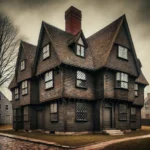New Orleans is a city with a musical soul, and at the heart of it lies Preservation Hall, an iconic venue that stands as a testament to the enduring legacy of jazz. Often referred to as the “birthplace of jazz,” Preservation Hall is more than just a performance venue—it’s a cultural landmark that preserves and celebrates the music that defines the spirit of New Orleans.
A Brief History of Preservation Hall
Established in 1961, Preservation Hall began as a small space dedicated to the preservation and celebration of traditional New Orleans jazz. During the mid-20th century, as modern jazz forms were gaining popularity, many of the city’s older jazz musicians struggled to find venues to perform in. Allan and Sandra Jaffe, a couple with a passion for jazz, recognized the need to protect the city’s musical heritage. They founded Preservation Hall with the goal of providing a space where veteran jazz musicians could continue to perform for future generations.
The hall itself is located in the French Quarter, housed in a modest, unassuming building on St. Peter Street. Yet within its rustic walls, some of the most legendary performances in the history of jazz have taken place, making it a must-visit destination for music lovers from around the world.
The Legacy of Jazz in New Orleans
New Orleans is often considered the birthplace of jazz, a genre that blends African rhythms, blues, and European classical music. As a melting pot of cultures, the city provided the perfect environment for this new style of music to flourish. Jazz grew out of the African American communities of New Orleans in the early 20th century and quickly became a defining element of the city’s culture.
Preservation Hall plays a crucial role in ensuring that the traditional forms of New Orleans jazz, such as ragtime and Dixieland, are kept alive and thriving. Over the years, many famous jazz musicians, including Louis Armstrong, Jelly Roll Morton, and Sidney Bechet, have been associated with the evolution of jazz in the city. While many modern jazz forms have emerged, the music played at Preservation Hall remains rooted in the traditional sounds that gave birth to the genre.
A Unique Musical Experience
Unlike many modern music venues, Preservation Hall has retained its authentic, intimate atmosphere. There are no microphones, amplifiers, or flashy light shows—just raw, acoustic jazz performed by some of the best musicians in New Orleans. The audience is invited to sit on simple wooden benches or stand along the walls, creating a sense of closeness between the performers and the listeners.
Each night, the Preservation Hall Jazz Band and guest musicians perform a variety of classic jazz tunes, often encouraging audience participation. The band is made up of a rotating cast of musicians, many of whom are second or third-generation jazz players, carrying on the traditions of their forefathers. Attending a performance at Preservation Hall is not just a musical event, but a journey back in time to the early days of jazz.
Cultural Significance of Preservation Hall
Preservation Hall is more than just a concert venue; it is a cultural institution. It has played a pivotal role in preserving the musical heritage of New Orleans and passing it on to future generations. The hall’s mission is to nurture the art form of traditional New Orleans jazz, and it has succeeded in doing so for over 60 years.
The Hall is also involved in community outreach, education programs, and efforts to support young musicians. Its influence extends beyond the walls of the French Quarter, contributing to the global appreciation of New Orleans jazz and its significance in the broader history of American music.
Visiting Preservation Hall
For those visiting New Orleans, a trip to Preservation Hall is a must. While the hall does not serve food or drinks like many other music venues in the city, what it offers is something much more valuable—a pure, unadulterated jazz experience. Shows are held multiple times each evening, and due to its popularity, it is recommended to arrive early or purchase tickets in advance.
For true jazz aficionados, private concerts and group performances can also be arranged, offering an even deeper immersion into the world of New Orleans jazz.
Preservation Hall is not just a historic landmark; it is the heartbeat of New Orleans jazz. Whether you’re a lifelong jazz enthusiast or a casual listener, a visit to Preservation Hall offers an unforgettable experience steeped in the rich musical history of the city. As you sit in this humble hall, listening to the sounds of traditional jazz, you’ll find yourself transported back to the roots of a genre that has shaped the cultural landscape of America and the world.


